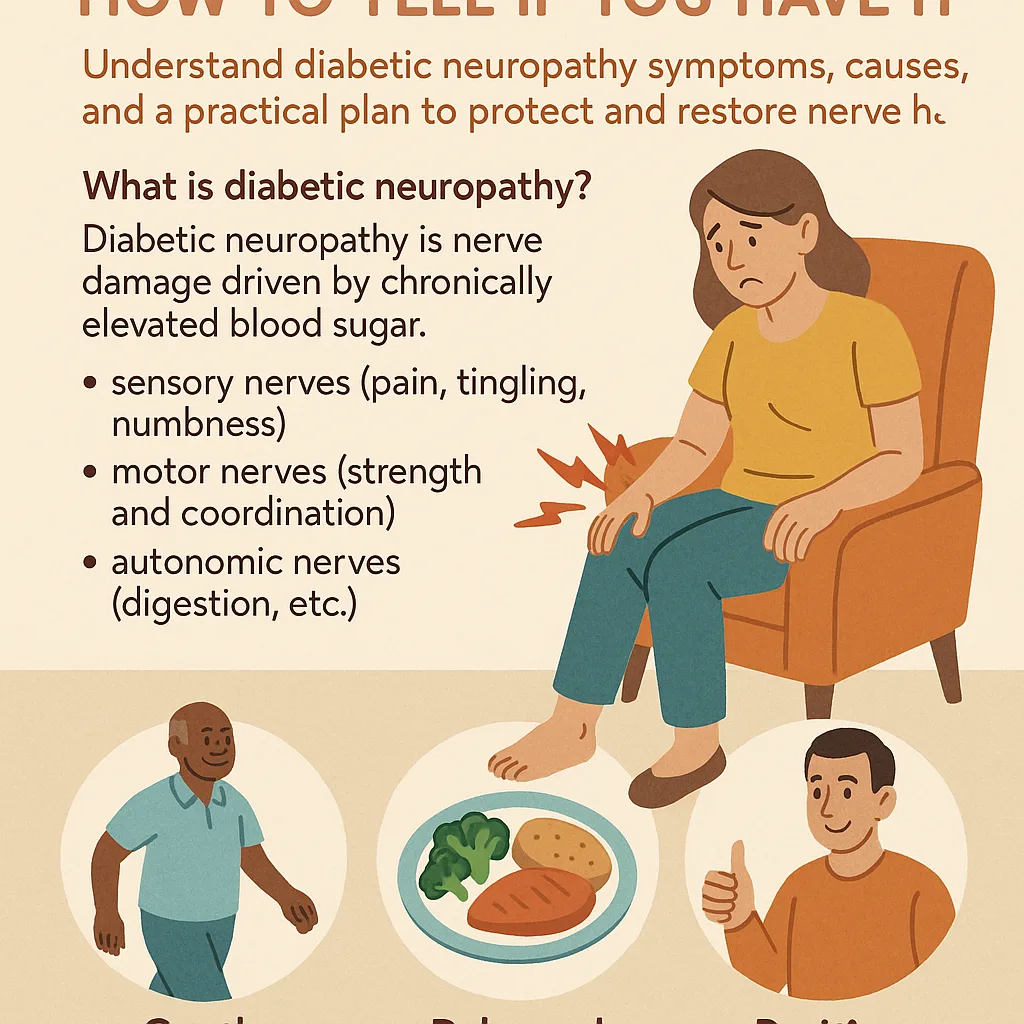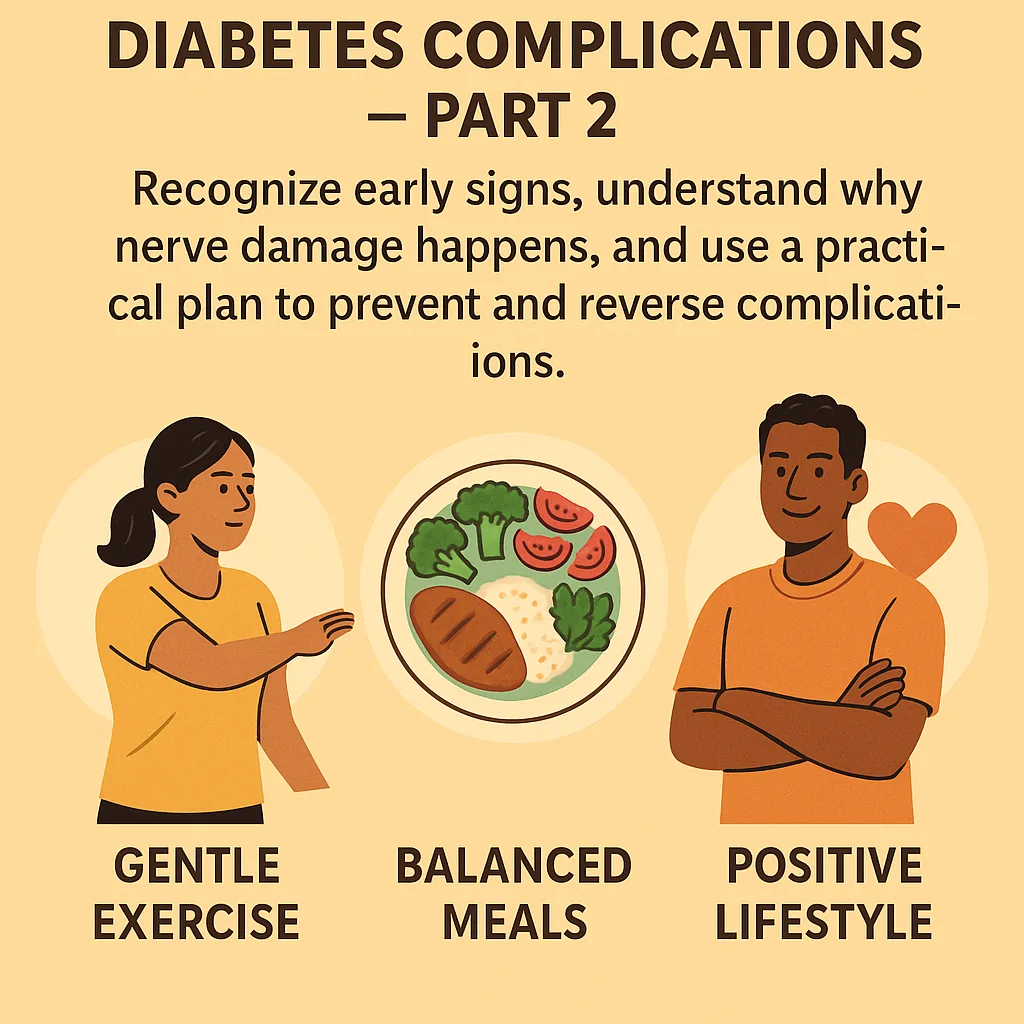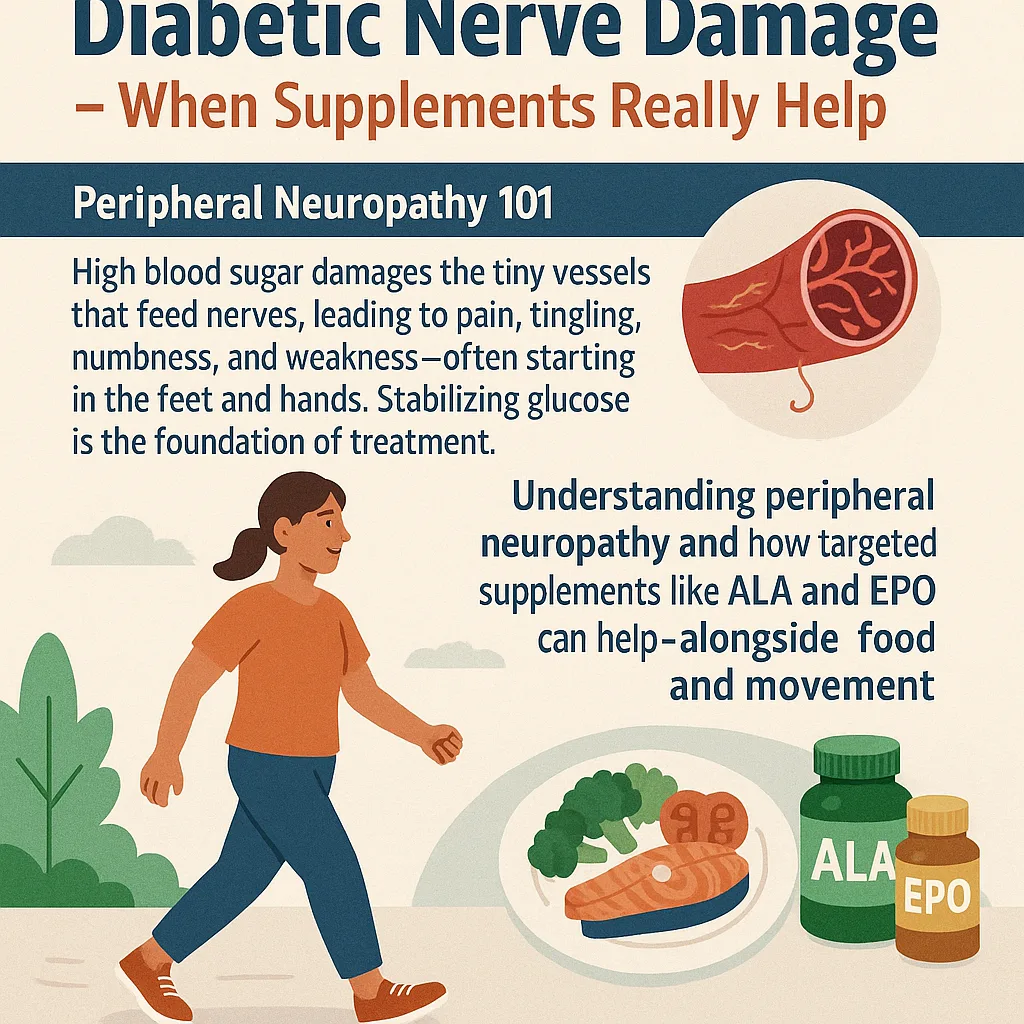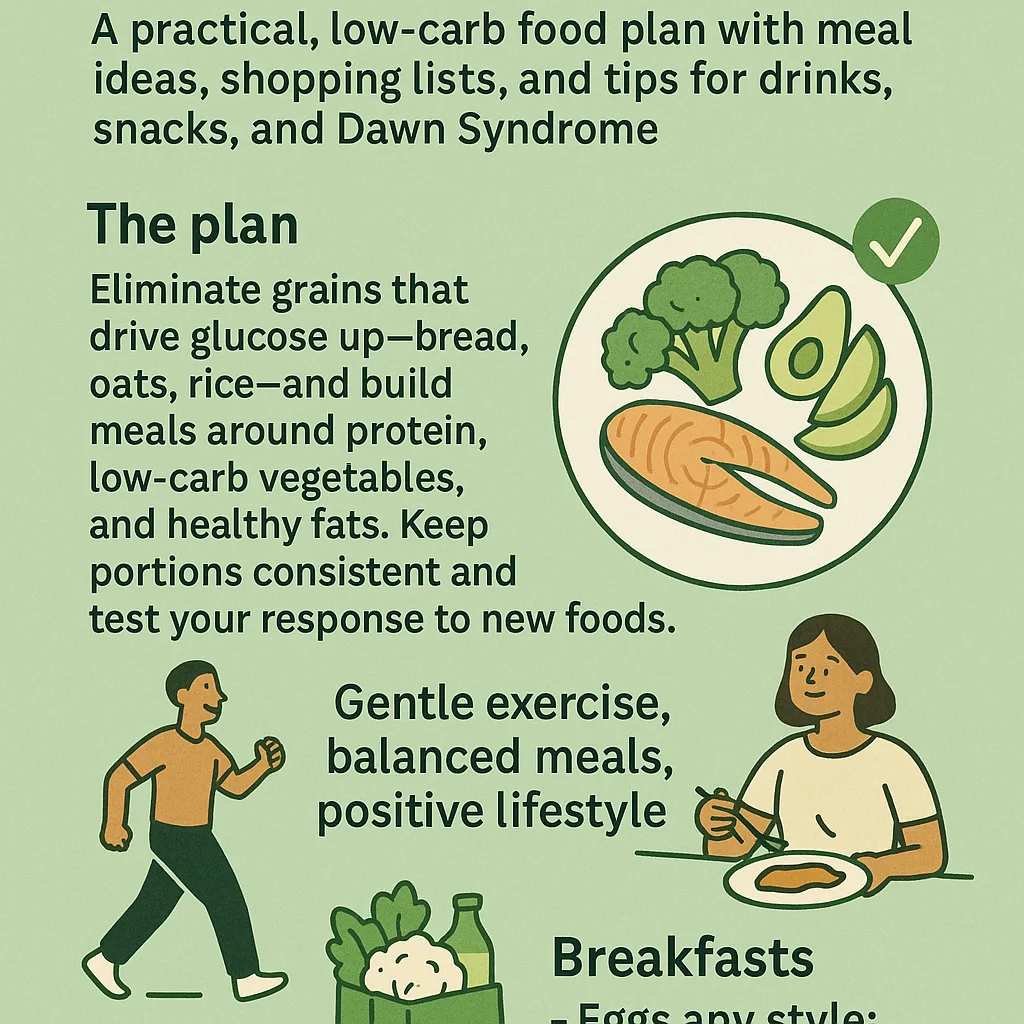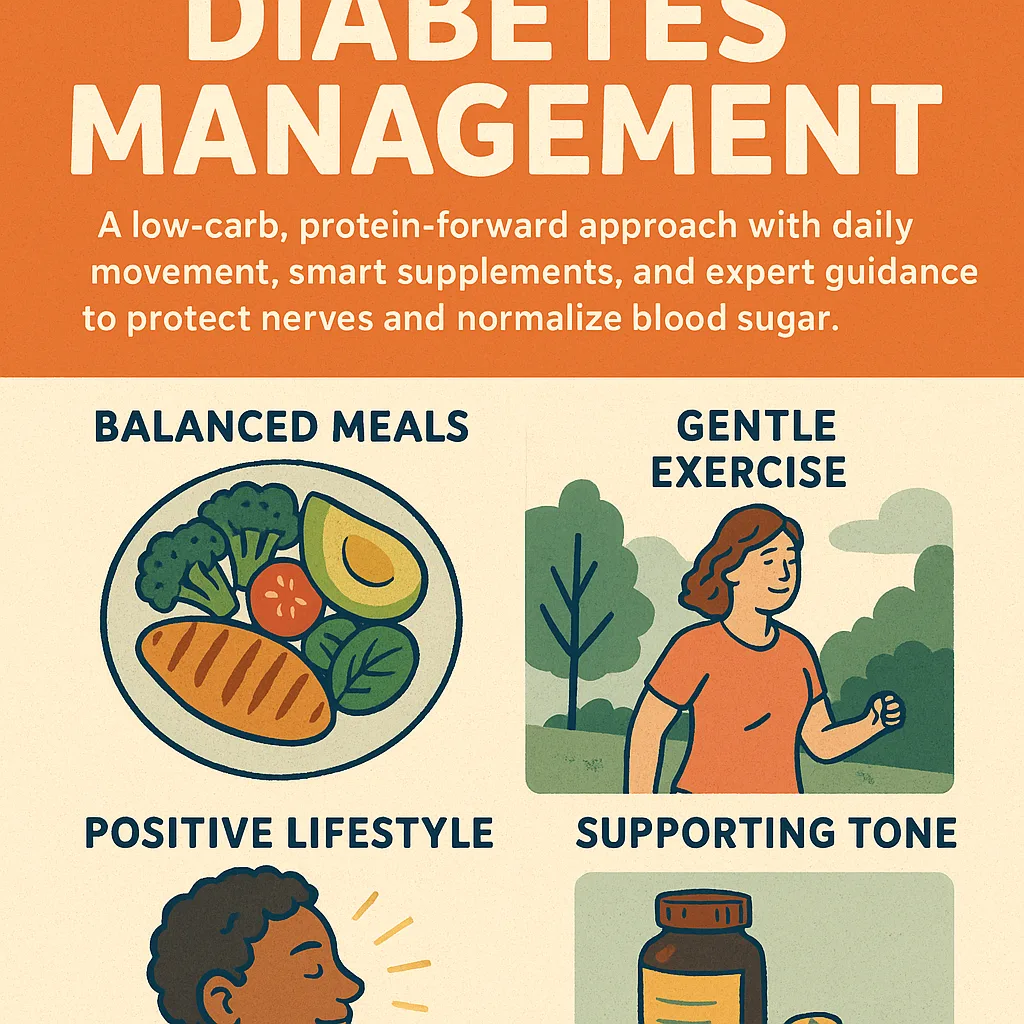What is diabetic neuropathy?
Diabetic neuropathy is nerve damage driven by chronically elevated blood sugar. It can affect sensory nerves (pain, tingling, numbness), motor nerves (strength and coordination), and autonomic nerves (digestion, blood pressure, sweating, sexual function). Many people notice symptoms first in the feet and hands.
Symptoms to watch for
- Tingling, burning, numbness, or pain in toes and fingers
- Muscle weakness or cramps, trouble with balance
- Digestive irregularity (constipation or diarrhea)
- Dizziness standing up, sweating changes, sexual dysfunction
If these sound familiar, get evaluated. Early recognition leads to faster relief.
Why high glucose harms nerves
Elevated glucose causes glycation and oxidative stress that damage the tiny blood vessels feeding nerves. Oxygen and nutrients become limited; nerves misfire. The fix begins with removing the daily injury: stabilizing blood sugar.
A practical plan to protect nerves
Stabilize glucose
- Build meals around protein and non‑starchy vegetables; personalize carbs to your meter or CGM.
- Keep portions consistent; avoid large, erratic carb loads.
- Consider a protein‑forward breakfast to set the tone for the day.
Move most days
- Walk 10–15 minutes after meals.
- Strength train twice weekly to support insulin sensitivity and joint stability.
Foot care
- Daily inspection; address hot spots early; moisturize heels.
- Wear well‑fitting shoes; see a podiatrist for problem areas.
Sleep and stress
- Protect a 7–9 hour window; dim lights before bed.
- Use short breathing practices or brief outdoor walks to reset.
Supplements with clinician guidance
- Alpha‑lipoic acid, B‑complex vitamins, omega‑3s when appropriate.
When to see your clinician urgently
Sores that don’t heal, rapidly worsening pain, sudden weakness, or new vision changes need prompt care. Never change medications without medical supervision.
The hopeful outlook
Many people notice fewer nighttime cramps, decreased burning pain, and steadier balance within weeks to months of consistent glucose control and supportive habits. Progress is often gradual but meaningful—measured in easier walks, deeper sleep, and greater confidence moving through your day.
